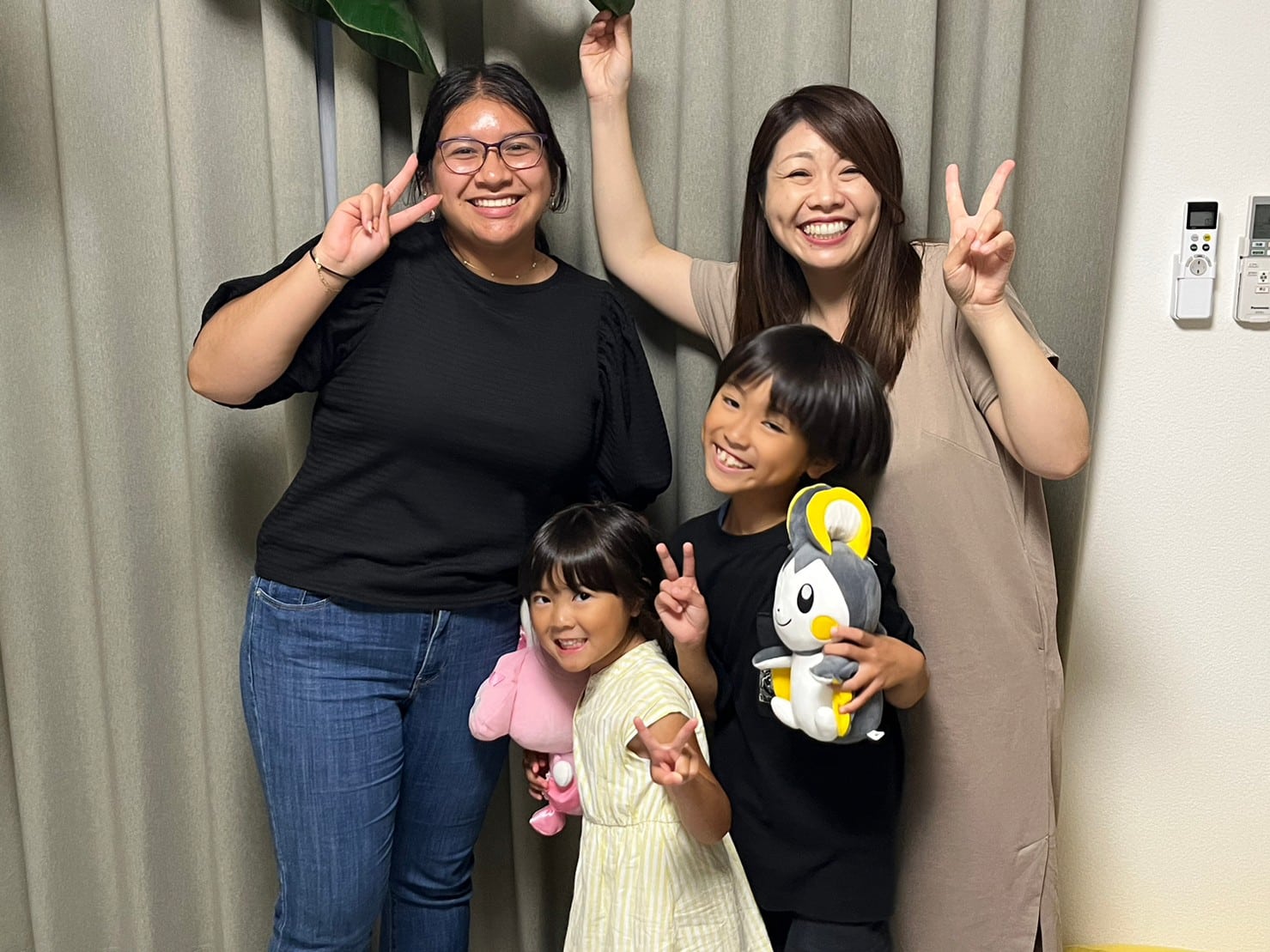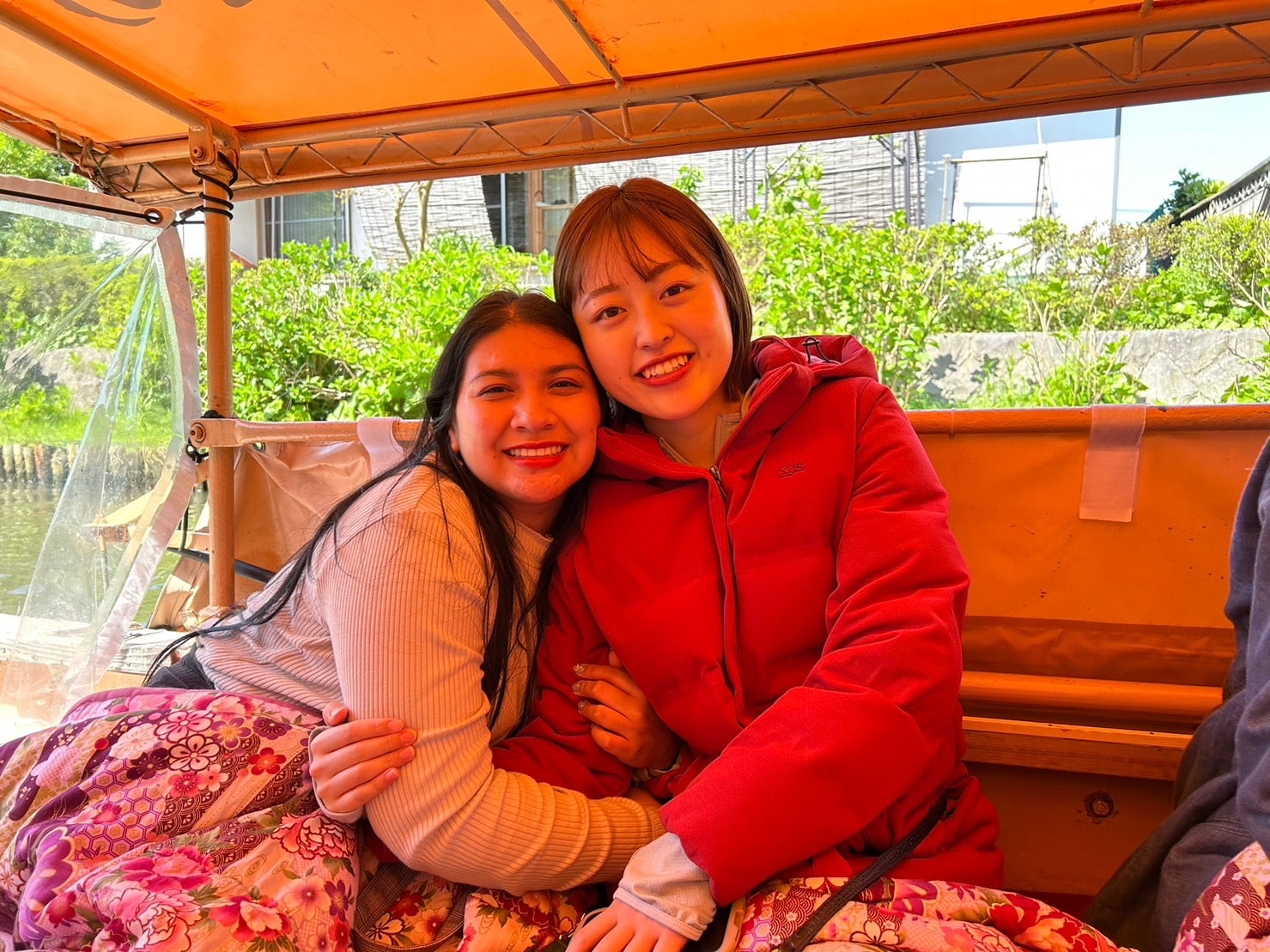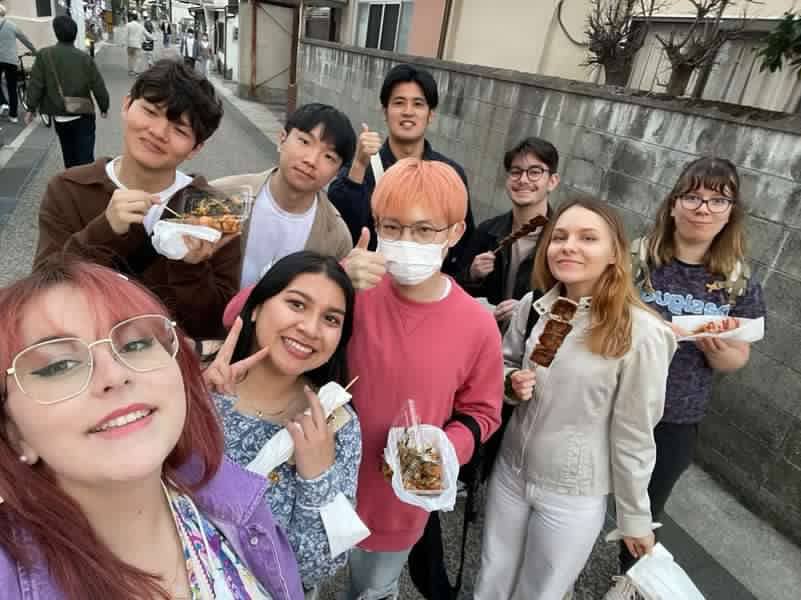Fatima Luna is a senior pursuing degrees in biomedical Science, with a chemistry emphasis, Japanese and comparative cultural studies, with an Asian emphasis. Originally from Avondale, she enrolled in the Interdisciplinary Global Programs (IGP), an award-winning program that offers a unique blend of STEM and cultural studies, allowing students the opportunity to develop strong foreign language proficiency while getting hands-on experience in another country.
Where did you study and why did you choose this particular country for your study abroad program?
Before my study abroad program, IGP formed a new partnership between NAU and Yamaguchi University, a national university located in rural Yamaguchi, Japan. The idea of studying in a more rural setting appealed to me because it would provide an immersive environment for strengthening my language and intercultural skills. Being in a place where I needed to use my target language forced me to adapt and fully engage with the culture and society. Despite the challenges, the experience allowed me to forge meaningful connections with the local people, other students and staff members.
What class(es) or research did you complete while abroad and for how long?
While studying abroad in Japan, I enrolled in Japanese integrated and grammar courses to enhance my language skills. These courses allowed me to study alongside other international students and engage with domestic Japanese students during daily lectures. In the latter half of my stay, I participated in a research internship at Hiroyuki Azakami’s Molecular Microbiology Laboratory, where I focused on the molecular mechanisms of bacterial colonization to host surfaces. During my internship, I presented my findings on pseudomonas aeruginosa in a PowerPoint presentation conducted entirely in Japanese. Prior to my internship, I was regularly invited to various events hosted by the laboratory to celebrate upcoming holidays and special occasions.
How did you fund your study abroad experience?

What’s been your biggest culture-shock moment?
My most significant culture shock moment occurred when my friend and her family took me to a public hot spring. I didn’t know what to expect, but what I saw and felt took me by surprise. Unlike in America or Mexico, where public nudity is uncommon, in Japan, it’s a normal part of their culture. As an outsider, I felt self-conscious and shy in that situation since it was something I had never experienced before. After a few visits, I did get used to it, but it was a mental adjustment more than anything.
What was your language-learning process? Can you tell us about a humorous language-related situation you encountered?
While in Japan, I felt fortunate that many of the larger or touristy cities had English speakers, which allowed me to predominantly use Japanese in everyday situations like shopping or attending school. At that point, I felt like I was breathing and thinking in Japanese. I made a conscious effort to use Japanese as much as possible, occasionally resorting to English only when I couldn’t find the right words. Usually after an interaction, I would always ask for a photo together, which my friends could not believe I had the confidence to do. One unique experience was visiting elementary, middle and high school students as part of one of my classes. We introduced them to our countries and asked them questions about what they had learned. It was both interesting and humorous to hear how these students interpreted countries like the United States and Mexico. They were fascinated by the differences in portion sizes and available items compared to Japan. And would often yell excitedly to inform the teachers of their findings. Through these interactions, I learned a lot of different words and phrases. It was a heartwarming experience that reminded me that kids are the same everywhere in the world.
Tell us about a cross-cultural misunderstanding you encountered. How was it resolved?

At the beginning of my study abroad program, I formed many friendships, and one person in particular became a close and cherished friend. However, I encountered a surprising situation when we spent a day together and discussed the possibility of taking a trip together. We made plans and even set dates in our calendars. Yet, less than an hour after returning home, she messaged me with an apology. She explained that due to her busy schedule involving job hunting, a common practice for t
hird-year university students, and her internship commitments, the trip was no longer possible. To avoid confrontation, she chose not to voice her true feelings and agreed to any alternative suggestions quietly. This practice is common in Japanese society, where people often apologize rather than express themselves directly. Given our different cultural backgrounds, I felt hurt because, as best friends, I expected straightforward communication. However, I learned that this directness is not the norm in Japan’s society.
How has this study abroad experience influenced your personal, academic and career goals? Has it opened up new possibilities or changed your direction?
Since the beginning of my university studies, I’ve had a strong desire to help children. I initially pursued a degree in biomedical science with the goal of becoming a pediatrician. However, my study abroad experience provided me with valuable opportunities to support others, including children, in improving their English language skills. I had the privilege of teaching English to families and even members of Japan’s self-defense force. This unique experience inspired a shift in my focus. Upon returning, I am now determined to return to Japan and continue helping children and students develop their language skills. While I still aspire to pursue my biological studies in the future, my immediate goal is to pursue this new path.



